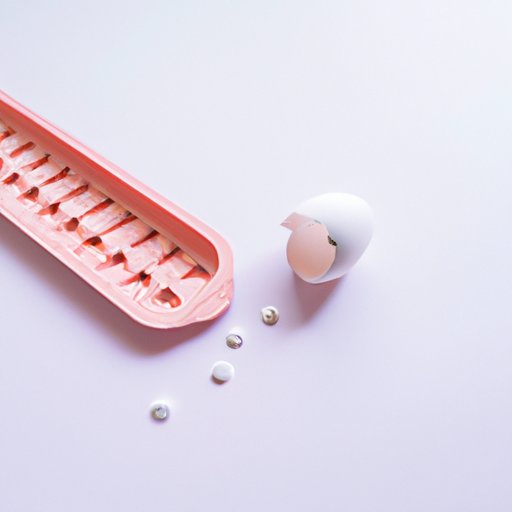
Introduction
If you are trying to conceive or simply curious about the science of ovulation and fertility, you might be wondering how many days before ovulation can you get pregnant. Understanding ovulation is crucial for anyone trying to conceive, as timing is key. This article is aimed at providing comprehensive information on the different factors that affect fertility and the chances of pregnancy.
The Science of Ovulation and Conception
Ovulation is the process by which a woman’s ovaries release an egg into the fallopian tubes, making it available for fertilization by a sperm. This process typically occurs once a month for most women and can be predicted with reasonable accuracy based on the length of your menstrual cycle. However, ovulation dates can vary from cycle to cycle, which is why understanding your body’s signals is so important when trying to conceive.
Once the egg is released, it can be fertilized up to 24 hours later. While sperm can live inside the female reproductive tract for up to five days, this still means there are only a few days each month during which it is possible to get pregnant.
It’s essential to track your menstrual cycle and understand when you are ovulating. This will enable you to time intercourse correctly and increase your chances of conceiving.
Personal Anecdotes and Stories
Many couples have been surprised to learn that they got pregnant at a time they didn’t expect, either before or after their estimated ovulation date. It is important to note that ovulation dates can vary, and conception is possible at different times during a menstrual cycle. This is why tracking your cycle is essential.
Some couples rely on calendar tracking to find the ideal window for conception, while others rely on ovulation predictor kits (OPKs) or basal body temperature tracking to gain even more precise information about their ovulation date.
Tracking Ovulation and Fertility
There are various methods for tracking ovulation and fertility, including:
- Basal body temperature tracking
- Cervical mucus monitoring
- Ovulation predictor kits (OPKs)
- Saliva ferning tests
These tools help detect the body’s indications that ovulation is imminent, which significantly increases the chances of conception. They are available online or in drug stores and are relatively easy to use. The more you monitor your signals, the more accurate your understanding of your body and ovulation gets.
Effectiveness of Birth Control Methods
Many contraceptive methods are designed to prevent pregnancy by preventing ovulation. Hormonal methods, such as the pill, patch, or shot, work by altering hormone levels to prevent ovulation from occurring, while barrier methods, such as condoms and diaphragms, work by preventing sperm from reaching and fertilizing the egg.
While these methods are generally effective, they can have a failure rate, and many women still conceive while using them. Some women find they get pregnant while taking birth control pills, which can be a surprise.
Common Myths and Misconceptions
Many myths and misconceptions exist about ovulation and pregnancy. One of these myths is that a woman can’t get pregnant while on her period, which is not entirely accurate. While it is rare to conceive while menstruating, sperm can survive inside the female reproductive tract for up to five days. If a woman has a shorter menstrual cycle, she may ovulate closer to her period and become pregnant.
It is essential to learn accurate information about ovulation and pregnancy to understand fertility fully and avoid myths and misconceptions.
Tips for Couples Trying to Conceive
There are several things couples can do to increase their chances of conceiving:
- Track your menstrual cycle and ovulation dates
- Have intercourse during your most fertile window
- Stay healthy and active by eating well and exercising regularly
- Avoid alcohol, drugs, and cigarettes
- Stay relaxed and do not stress out about trying to conceive
By following these basics tips, you can increase your chances of getting pregnant and alleviate some of the stress involved with trying to conceive.
Emotional Rollercoaster of Fertility Struggles
Trying to conceive can be an emotional rollercoaster for couples experiencing fertility struggles. Infertility can bring about feelings of grief, shame, or guilt. It is essential to stay positive and seek out resources and support. Several organizations provide support and counseling to couples experiencing fertility issues.
Conclusion
Understanding how many days before ovulation can you get pregnant is essential for anyone trying to conceive. It will help you prepare and predict the ideal time for conception. By following the tips and methods described in this guide, you can increase your chances of getting pregnant and avoid common myths about ovulation and pregnancy. Remember to seek additional resources or support if you need help and stay patient and positive.





